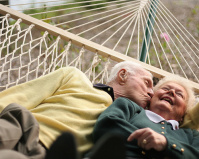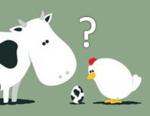 It is said that during our twenties we spend our time worrying about what other people think . In our thirties, we blame our parents for all our problems. In our forties, we finally realise that no one was really paying us that much attention and all our issues aren’t our parent’s fault after all.
It is said that during our twenties we spend our time worrying about what other people think . In our thirties, we blame our parents for all our problems. In our forties, we finally realise that no one was really paying us that much attention and all our issues aren’t our parent’s fault after all.
Not so very long ago, a certain Sir Michael rather publically lamented today’s teachers – accusing them of being a group of whinging bums (I paraphrase). One commenter wondered whether it was just his age getting the better of him. She questioned whether there is any research about age-related ‘grumpiness’. In today’s post, you will find out whether there really is any truth to the “grumpy old codger” stereotype – and whether we are all destined to get grumpy as we get old…
When I worked on geriatric wards, I met a lot of grumpy characters. In amongst the rude grannies there were some charming old spinsters and endearing ex-war heroes. It’s generally easier to remember the nasty ones though. From personal experience, it’s difficult to judge whether oldies get more moody and, scientifically speaking, ‘grumpiness’ isn’t the easiest thing to measure - there isn’t any research that directly looks at ‘grumpiness’ (‘grade this person from 1 to 10 on grumpiness?’).
To have a proper look at the facts of grumpiness, we will find out about the changes in humour, personality and life enjoyment as we ever-so-gracefully glide into our twilight years.
Disclaimer: All stats and conclusions are based on the general trends and averages – everyone’s different, so don’t moan at me if it doesn’t match up with your eperience!
1. Like a fine wine, personality matures with age
 Psychiatrists used to say that personality never changes. At least that is was what I was taught. After surviving adolescence, your individual character is fully formed and – like it or not – will be with you for the rest of your life. Your tendencies, traits and temperament are set to endure forever.
Psychiatrists used to say that personality never changes. At least that is was what I was taught. After surviving adolescence, your individual character is fully formed and – like it or not – will be with you for the rest of your life. Your tendencies, traits and temperament are set to endure forever.
Recent years have revealed a more liberating picture. Rather than being set in stone, qualities and traits evolve (often subtly) over time. Research shows that you aren’t likely to be the same person at 90 as you were at 19.
Although we are all different some general patterns occur. Typically, we become more introverted and more emotionally stable when progressing into older age (from 65+). Crucially, an average retired person is more ‘agreeable’ than either a young or middle-aged adult: they are more likely to be empathetic, considerate, friendly, generous, and helpful.
So not grumpy then.
2. Life gets more fun even when the joints creak
Smiling silver foxes enjoying golf in the sun or glum gnarly grannies slumped in a rocking chair: both are powerful enduring images of how we view being ‘old’. Which is more true? As the years pass, is it anxiety, concern and dissatisfaction; or peace, happiness and inner contentment that awaits?
A large ‘quality of life’ survey performed in the UK and USA looked at the mental and physical well-being of 10,000 men and women. Comparing the differences between younger and older adults – physical health is worse after the age of 60 (no surprises there), but, mental wellbeing actually improves.
So based in this, wrinkles apparently bestow a more positive outlook and greater enjoyment of life.
Put simply, life is more fun as we get older. Another game of golf anyone?
*Interestingly, people in the USA tend to enjoy a better quality of life than in the UK. Draw your own conclusions!
3. Old people have self-esteem issues
Life may be more satisfying and enjoyable with the passing years, but here’s the kicker: self-esteem goes into free-fall after the mid-seventies.
In 2005, a paper collated all the research from the last ten years on self-esteem and age. Researchers from Kings College London and University of California showed that throughout life, our sense of self-worth follows a very particular pattern: Self-esteem is highest as a young child (‘I am invincible!’), lowest in adolescence (‘does my bum look big in this?’), not much better in the twenties and thirties (‘I wish I had a better job’), but sky rockets in the fifties (‘Thank goodness the kids have left home!’). Thereafter, it’s all downhill.
How depressing. Quick, someone tell a joke…
4: Old people don’t laugh at jokes anymore
Laughing is good for the heart (and mind). We all like a good laugh, especially when work’s hard and the weather is bad (did I mention I live in England?). Research shows that even the very old people are just the same, and relish a good chortle. The only obstacle to gigging with your granny is that she won’t understand jokes in the same way younger folks do.
Several experiments (all the references are below) have explored what makes old people and young people laugh. The consistent finding is that as we age, the brain becomes less adept at understanding humour. It appears that one part of the brain in particular – the right frontal lobe – is essential for getting witty puns. As the brain inevitably shrinks with age, cartoons and word-plays and Edie Murphie’s one-liners are increasingly difficult to grasp.
So although your granddad may be po-faced when you crack a joke, it’s probably not deliberate grumpiness. His neural wiring may no longer be able to grasp your witticisms. However, slapstick and physical comedy work just as well – and surveys show that senior citizens most enjoy laughing at children, people and animals. It would therefore follow that putting on a National Lampoon’s DVD would enrich your family get-together. I’d certainly laugh at that.
Conclusion: Old people aren’t any grumpier (mostly)
So what are we to conclude? Do people get grumpier as they get older? The research would suggest not. At least, it doesn’t seem to be an inherent part of the ageing process.
Older people are more likely to be well-rounded, happy people. Who experience more self-doubt. And don’t laugh at all your jokes.
So whatever is the matter with Sir Michael Wilshaw, it probably isn’t his age. Give him time though, he’s only 65.
I think I might just send him a Shrek DVD to watch anyway…
Thanks for reading - all opinions are my own. Feel free to leave your comments below…
REFERENCES:
Noftle EE, & Fleeson W (2010). Age differences in big five behavior averages and variabilities across the adult life span: moving beyond retrospective, global summary accounts of personality. Psychology and aging, 25 (1), 95-107 PMID: 20230131
Roberts BW, & DelVecchio WF (2000). The rank-order consistency of personality traits from childhood to old age: a quantitative review of longitudinal studies. Psychological bulletin, 126 (1), 3-25 PMID: 10668348
Franco OH, Wong YL, Kandala NB, Ferrie JE, Dorn JM, Kivimäki M, Clarke A, Donahue RP, Manoux AS, Freudenheim JL, Trevisan M, & Stranges S (2012). Cross-cultural comparison of correlates of quality of life and health status: the Whitehall II Study (UK) and the Western New York Health Study (US). European journal of epidemiology, 27 (4), 255-65 PMID: 22392587
Orth U, Trzesniewski KH, & Robins RW (2010). Self-esteem development from young adulthood to old age: a cohort-sequential longitudinal study. Journal of personality and social psychology, 98 (4), 645-58 PMID: 20307135
Robins, Richard W,, & Trzesniewski, K H (2005). : Self-esteem development across the lifespan Current Directions in Psychological Science, 158-162 DOI: 10.1111/j.0963-7214.2005.00353.x
Mak W, & Carpenter BD (2007). Humor comprehension in older adults. Journal of the International Neuropsychological Society : JINS, 13 (4), 606-14 PMID: 17521496
Shammi P, & Stuss DT (1999). Humour appreciation: a role of the right frontal lobe. Brain : a journal of neurology, 122 ( Pt 4), 657-66 PMID: 10219779
Kruse BG, & Prazak M (2006). Humor and older adults: what makes them laugh? Journal of holistic nursing : official journal of the American Holistic Nurses’ Association, 24 (3), 188-93 PMID: 16880415











Hey, you, Get off my lawn!
Posted by Frank | July 3, 2012, 2:05 amWell yes grumpyness is not scientific I admit - what I ought to have said was “tendency to think things were generally done better in the past ”
But I spot a possible confounding variable in the evidence you produce Dr Stu - I suggest that for many people, giving up work might have a powerful positive effect on mood ! (getting less grumpy myself now as holidays approach). Have a good one everybody !
Posted by Ruth Behan | July 3, 2012, 9:20 am